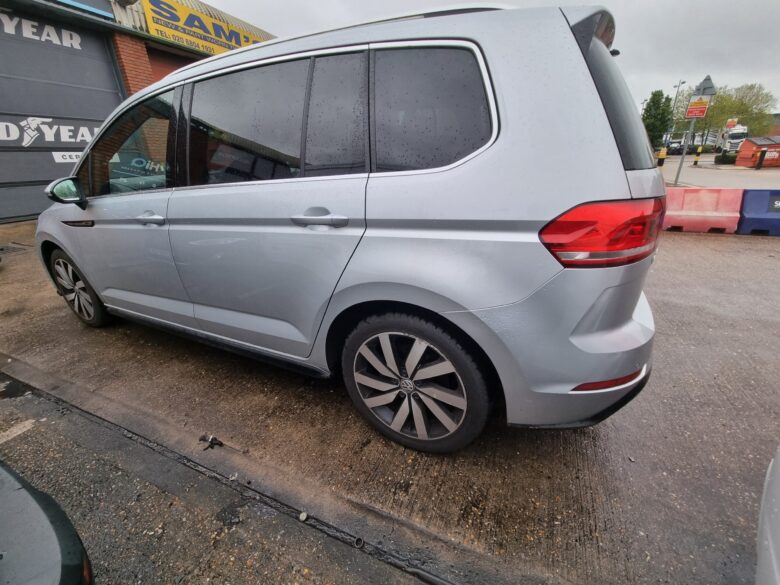Buying a car is an exciting journey, but it can also be overwhelming, especially if you’re considering a used vehicle. With so many choices and factors to weigh, how do you know where to start? Whether you’re looking for your first ride or upgrading from your trusty old sedan, there are plenty of reasons to explore the world of used cars. Not only can they save you money, but they often come with added benefits like lower insurance costs and less depreciation.
In this ultimate guide for 2024, we’ll walk you through everything you need to know about buying a used car. From understanding what makes a great deal to ensuring the vehicle’s reliability, we’ve got all the tips and tricks that will make your experience both enjoyable and successful. Ready to hit the road in style without breaking the bank? Let’s dive in!
Reasons to Consider Buying a Used Car
Buying a used car can be a smart financial move. The most obvious reason is cost savings. Used cars typically come with significantly lower price tags than new ones, allowing you to stretch your budget further.
Depreciation is another factor to consider. A new car loses value rapidly within its first few years. By purchasing used, you avoid that steep initial drop in value and can enjoy a vehicle that retains its worth longer.
Insurance costs also tend to be lower on used vehicles, which means more money stays in your pocket each month.
Moreover, the variety available today is impressive. You have access to an extensive range of makes and models, often including those luxury brands that might be out of reach when shopping for new cars.
Buying used contributes positively to sustainability by reducing waste and promoting recycling within the automotive industry.
Factors to Consider When Choosing a Used Car
When selecting a used car, start with your lifestyle. Think about how you’ll use the vehicle daily. Commuting, road trips, or family transport? Your needs will shape your choice.
Next, evaluate reliability ratings. Research brands known for durability and low maintenance costs. A dependable model can save you time and money in the long run.
Mileage is another critical factor. Generally, lower mileage indicates less wear and tear. However, don’t overlook well-maintained cars with higher mileage that fit your budget.
Consider fuel efficiency too. The price of gas fluctuates; an efficient car will ease those ongoing expenses.
Think about insurance costs associated with different models. Some vehicles may be more expensive to insure based on their safety ratings or popularity among thieves.
Where to Find Quality Used Cars
Finding quality used cars can feel overwhelming, but there are several reliable avenues to explore. Start by checking online marketplaces like Autotrader, Cars.com, and CarGurus. These platforms offer extensive listings and user reviews.
Local dealerships often have certified pre-owned options. Visiting them provides the chance to inspect vehicles closely and ask questions about their history.
Don’t overlook private sellers. Websites like Craigslist or Facebook Marketplace can yield hidden gems at competitive prices. However, ensure you conduct thorough research before meeting anyone in person.
Consider attending local car auctions as well. They frequently feature a variety of vehicles at potentially lower prices than traditional sales channels.
Word-of-mouth recommendations from friends or family can lead to trustworthy sources you might not find elsewhere. Explore all these options to increase your chances of scoring a dependable car that fits your needs.
How to Negotiate a Good Deal
Negotiating a good deal on a used car can feel daunting, but it’s all about preparation and confidence. Start by doing your homework. Research the market value of the vehicle you want to buy. Websites like Kelley Blue Book or Edmunds provide valuable insights.
When you’re at the dealership, don’t show too much enthusiasm for a specific car. This keeps your bargaining power intact. Instead, engage with the seller casually while remaining focused on getting a fair price.
Make an initial offer lower than what you’re willing to pay. This gives you room to maneuver during negotiations. Be polite yet firm; showing respect often encourages sellers to work with you.
Consider discussing additional perks such as warranties or maintenance packages once you’ve settled on a price. These extras can add significant value without increasing your budget drastically.
Essential Pre-Purchase Checks for a Used Car
Before you seal the deal on a used car, conduct essential pre-purchase checks. Start with a visual inspection. Look for signs of rust, dents, or mismatched paint that could indicate past accidents.
Next, check the tires. Uneven wear might suggest alignment issues. Ensure they have enough tread left to keep you safe on the road.
Don’t overlook under the hood. Examine fluid levels and belts for wear and tear. A well-maintained engine can save you from costly repairs down the line.
Take it for a test drive in various conditions—highway speeds and city traffic will reveal how it handles.
Consider having an independent mechanic inspect the vehicle before finalizing your purchase. Their expertise can uncover hidden problems that may not be obvious to the average buyer.
Financing Options for Used Cars
Exploring financing options for used cars can be a game-changer. Many buyers overlook this crucial step, but understanding your choices is essential.
Traditional bank loans are popular. They typically offer competitive interest rates if you have good credit. A pre-approved loan gives you an edge when negotiating prices with sellers.
Credit unions also provide appealing alternatives. Their rates may be lower than banks’, making them worth considering. Membership often brings additional benefits too.
Another option is dealer financing. While it might seem convenient, always read the fine print carefully to avoid hidden fees or inflated interest rates.
Don’t forget about personal loans from online lenders as well. These can offer quick access to funds without tying you down to dealership terms.
Regardless of the route you choose, ensure that monthly payments fit comfortably within your budget to keep financial stress at bay while enjoying your new ride!
Maintenance and Repair Costs of Used Cars
When buying a used car, understanding maintenance and repair costs is crucial. Older vehicles often require more frequent servicing. It’s wise to consider the model’s reliability ratings.
Some brands are known for their durability, which can lead to lower long-term expenses. Research common issues associated with specific makes and models before making a decision.
Don’t forget about regular upkeep like oil changes, tire rotations, and brake inspections. These routine services keep your vehicle running smoothly and prevent larger repairs down the road.
Also, factor in potential costs for unexpected breakdowns. Having an emergency fund set aside for repairs can ease financial strain later on.
Consider researching average repair prices through online forums or local mechanics as well. This knowledge empowers you during negotiations and helps avoid surprises after purchase.
Tips for Choosing Reliable Sellers and Dealerships
When searching for a reliable seller or dealership, start by doing your homework. Read online reviews and check ratings on platforms like Google, Yelp, and local forums.
Look for sellers who have been in business for several years. Longevity can indicate trustworthiness and customer satisfaction.
Don’t hesitate to ask questions about their inventory. A knowledgeable seller should be able to provide clear information regarding the cars they offer.
Trust your instincts during interactions. If something feels off or if the salesperson seems evasive, that could be a red flag.
Visit multiple dealerships before making a decision. Comparing various options will help you gauge professionalism and service quality.
Consider seeking recommendations from friends or family members who have recently bought used cars. Personal referrals often lead to trustworthy connections in the car buying process.
The Importance of Vehicle History Reports
A vehicle history report is your window into a car’s past. It reveals crucial details that can significantly influence your buying decision.
These reports often include accident history, title status, and previous ownership records. Knowing if a car has been in serious accidents can save you from costly repairs down the line.
Additionally, they highlight any potential odometer discrepancies. A rolled-back odometer could suggest deceptive practices by the seller.
You’ll also find information about service records. Regular maintenance typically indicates better care and reliability over time.
Obtaining this report is relatively simple and worth every penny spent. Many reputable online services provide these insights quickly and efficiently.
When considering a used car, having access to its history isn’t just beneficial—it’s essential for making an informed choice. Don’t skip this step; it’s one of the best ways to protect your investment.
Avoiding Scams and Hidden Costs
When navigating the used car market, awareness is your best ally. Scams and hidden costs can lurk around every corner, so it’s crucial to stay vigilant. Always conduct thorough research on both the vehicle and the seller. Look out for deals that seem too good to be true; they often are.
Be wary of sellers who pressure you into making quick decisions. Take your time and don’t hesitate to walk away if something feels off. It’s also wise to ask for a detailed breakdown of any fees associated with the sale upfront—this will help avoid unexpected surprises later on.
Check reviews online about dealerships or private sellers before proceeding with a purchase. Transparency in pricing and vehicle history should always be non-negotiable aspects of any transaction. Trustworthy sellers will encourage inspections by third parties and provide clear information regarding warranties or return policies.
By staying informed and cautious, you can navigate through potential pitfalls successfully. Knowledge is power when it comes to buying a used car, ensuring that you’re not just getting a great deal but also safeguarding yourself against scams that could cost you dearly down the road.



